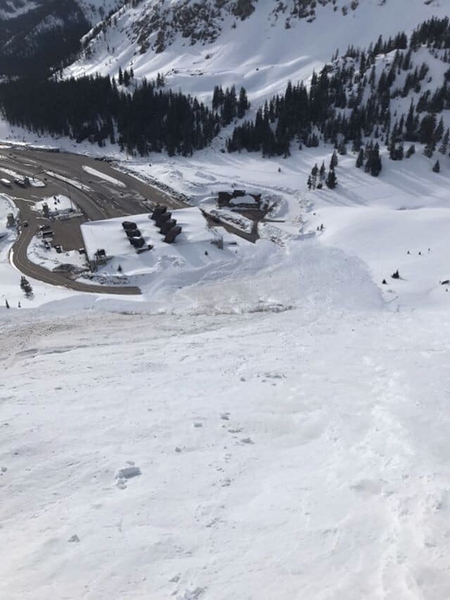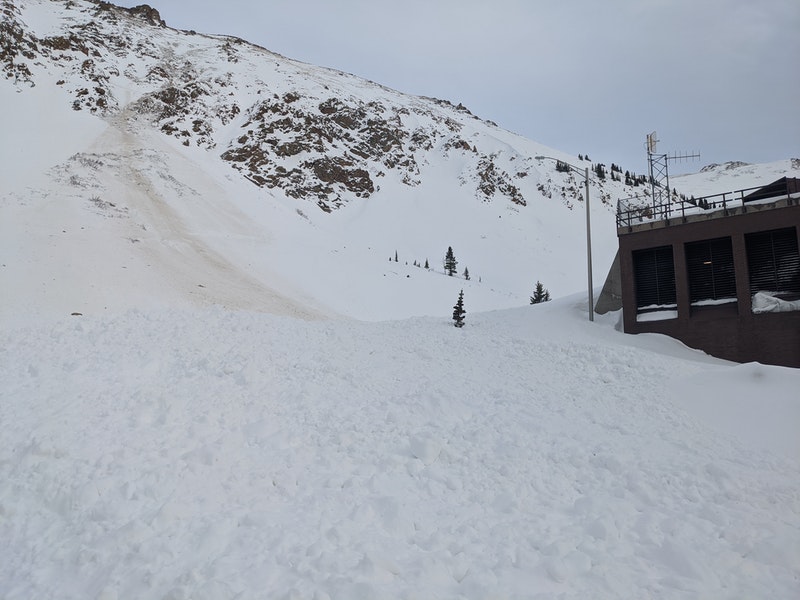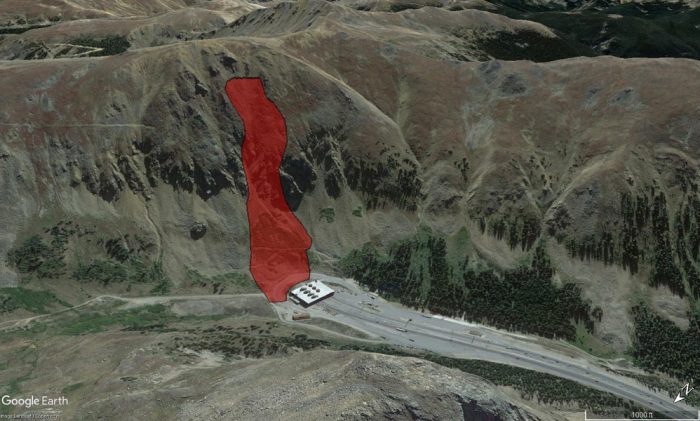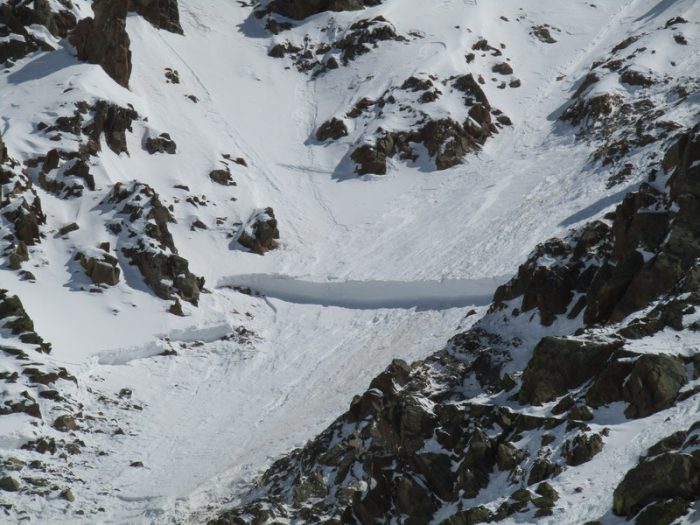Video of the avalanche that buried a service road and damaged CDOT avalanche mitigation equipment at the I70 Eisenhower Tunnel, CO. This video is being used as evidence in a criminal court case against Tyler DeWitt and Evan Hannibal, who triggered the slide while backcountry skiing a slope above the highway.
- Related Story: Court Case of Men Who Triggered Avalanche Near Eisenhower Tunnel, CO in March 2020 Continues
The legal wrangling in preparation for the criminal court case against two Colorado men who triggered an avalanche that buried a service road and damaged Colorado Department of Transportation infrastructure continued this week. As reported in several previous SnowBrains articles, Evan Hannibal and Tyler DeWitt were charged by the Summit County Prosecutor’s Office with Reckless Endangerment and are facing up to $168,000 in penalties for damage to an avalanche mitigation device.
This case is the first of its kind. Backcountry skiers and snowboarders have never been criminally prosecuted for their involvement in an avalanche incident in Colorado or the rest of the United States. In an October 18, 2020 article in the Colorado Sun, Bruce Brown, the district attorney for Colorado’s 5th Judicial District, pointed out that Hannibal and Dewitt were aware of the risk of an avalanche and discussed how to avoid that risk. Brown said:
We charged them with reckless endangerment because it was foreseeable they were putting other people at risk of serious bodily injury in that they recognized the potential for a slide and they could obviously see, right below their skis, I-70, where 100,000 cars go by each week,” Brown said. “They knew if there was a slide, it could end up on the roadway, endangering the traveling public.
— Bruce Brown, District Attorney, Colorado 5th Judicial District

Much of the DA’s case involves the above video that Hannibal shared with the Colorado Avalanche Information Center (CAIC). Hannibal and DeWitt shared their video and observations to the CAIC in a good faith effort to inform the public agency of an avalanche incident that they were involved in. They did not anticipate that this might lead to criminal charges against them. They insisted in court that prosecutors violated their protection from unlawful search and seizure when they issued criminal charges based on the helmet-cam video. As reported in an October 18, 2021 article in the Colorado Sun, their attorney Jason Flores-Williams argued that the use of the video they provided constituted an unreasonable search and seizure.
“This is a state agency, a constitutional actor, not informing citizens that what they are voluntarily disclosing in good faith to that that state agency could, and in this case was, turned over to law enforcement for purposes of prosecution. This is extraordinarily problematic. There was a duty to inform Mr. Hannibal that what he was providing to the CAIC could be turned over to law enforcement.
— Jason Flores-Williams, Attorney for Evan Hannibal and Tyler DeWitt

Recently, Summit County Court Judge Ed Casias found no violation of the men’s constitutional protections from unlawful search and seizure because there was no search and nothing was seized. He allowed that the men’s video and information they provided to the CAIC might be used against them as the court case proceeds. Casias also denied the argument that the video’s collection violated the men’s Miranda rights, which only applies to people in custody when they are advised that what they say can be used against them in court. Judge Casias stated:
It wasn’t a search of any kind. Mr. Hannibal was asked if he would provide it and he did.
There is information here that was provided. It was provided voluntarily. It was provided to CAIC, not law enforcement and the purpose of that was for information related to the avalanche,” Casias said.
The courts should work to ensure police don’t use third parties and other state agencies to gather evidence that could be used in filing criminal charges and circumvent constitutional protections against unlawful search and seizure, Casias said. Still, he could not connect a skier providing information to an avalanche center — even when that information became evidence in criminal charges — with a constitutional violation.
If there are things that you, as a backcountry traveler do that cause new concern that law enforcement may be involved and someone reaches out and asks for information, you don’t have to give it,” Casias said. “I can’t make you disclose and I can’t make you withhold. But if your common goal is to make it safer for other people … it’s your decision.”
–– Summit County Court Judge Ed Casias

Colorado Attorney General Phil Weiser last week argued that Summit County’s plan to call avalanche center director Ethan Greene as an expert witness “could have an unintended adverse ‘chilling’ impact on the CAIC’s ability to gather important information.
There is genuine concern by CAIC that if CAIC employees appear as an expert witness in a criminal matter it could adversely impact their ability to gather relevant information from persons involved in an avalanche,” the motion filed by Weiser’s office reads. “The more involved CAIC is in this criminal matter, the more it looks like they are working in coordination with law enforcement, rather than in cooperation with local law enforcement, resulting in a chilling effect to the detriment of CAIC’s mission.
There is considerable discussion of this story on social media. People are wondering if they should report avalanche incidents to avalanche information centers. The idea that information we share could be used against us makes many folks hesitant to share information. There have been a few incidents lately where people involved were reluctant to share information. A recent Tahoe incident sticks in my mind.
I would like to encourage people to continue to share their avalanche observations and involvements with local avalanche information centers.
